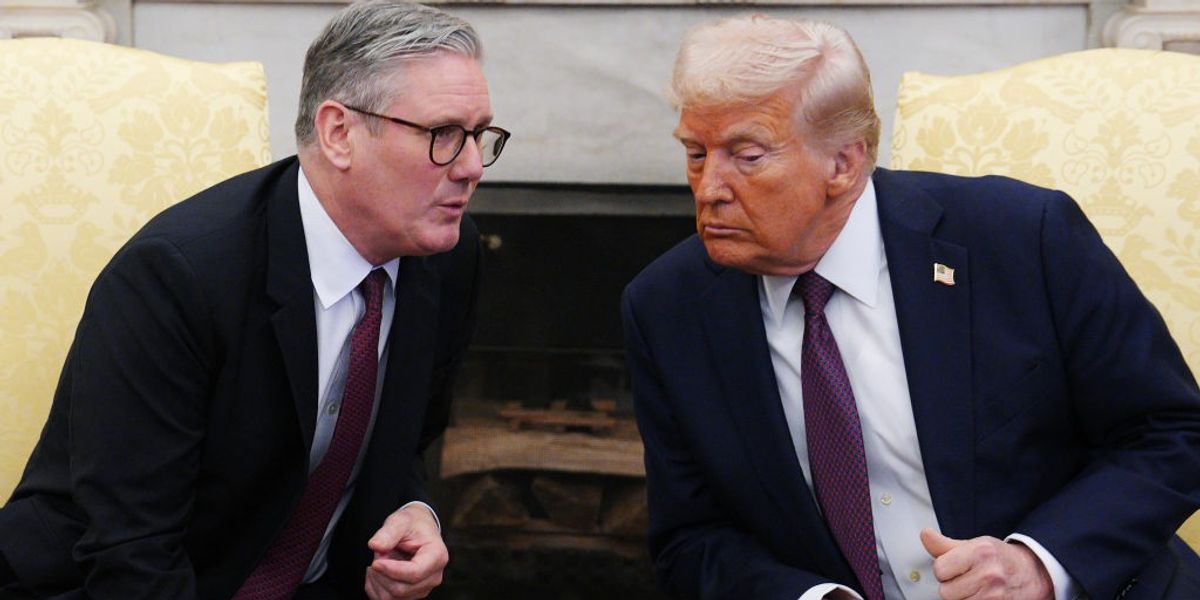Congressional Republicans Seek to Slap Down Activist Judges, Curtail Universal Injunctions
Activist judges have courted disaster with abusive nationwide injunctions to stop policies they don’t like.
Unlike the executive and legislative branches, the courts have only their reputation to give them power. With the recent spate of overzealous universal injunctions, some prominent members of Congress are threatening to intervene.
It was only a matter of time. Activist judges in lower-level courts are pulling a reverse Marbury v. Madison. They are directly challenging the power of the executive and legislative branches, claiming power they don’t have, and are paralyzing the proper function of federal government.
The Supreme Court has in the past called universal injunctions proper in only under the most “extraordinary” circumstances. Now, activist judges are making them ordinary and are creating a crisis of their own making.
Sen. Chuck Grassley, R-Iowa, chairman of the Senate Judiciary Committee, wrote in The Wall Street Journal Monday that he has proposed legislation to deeply curtail the use of national injunctions.
“Federal district judges have increasingly—and inappropriately—inserted themselves into the national policy debate,” Grassley wrote. “They have repeatedly chosen not only to decide the cases before them, but also to issue orders derailing executive policy nationwide.”
Grassley explained how the use of universal injunctions exploded during President Donald Trump’s first term and especially now in his second term.
“More than two-thirds of all universal injunctions issued over the past 25 years were levied against the first Trump administration,” Grassley wrote. In the first few months of Trump’s second term the courts have now issued more universal injunctions than the entirety of President Joe Biden’s four years in office.
Grassley noted that scholars have found no evidence of the use of the universal injunction used by federal courts before 1963. It’s clearly a modern phenomenon with major constitutional implications. Surely the framers of the Constitution did not intend for a single district court judge to dictate the terms of U.S. foreign policy.
Grassley proposed that if the Supreme Court does not step in soon to control the abuse of judicial power, then the way to reduce the scope of the injunctions without curtailing the proper role of the courts to review constitutional cases is to “limit district courts to resolving the cases only between the parties before them.”
The Iowa senator wrote that curtailing nationwide injunctions had bipartisan support in the past, though given that the courts have been the only effective measure the Left has had so far in stopping Trump’s agenda, that bipartisan support may quickly evaporate.
Sen. Josh Hawley, R-Mo., another member of the Judiciary Committee, has also proposed a bill to stop nationwide injunctions and has called on Republican leadership to take up the issue.
“Unelected district judges are usurping the authority of a duly-elected president and dictating national policy for 330 million Americans,” Hawley wrote in a press release about his bill. “Congress must stop this unconstitutional weaponization of the judiciary. My bill would be a critical step toward doing just that.”
It’s not just the Senate. Rep. Darrell Issa, R-Calif., has advanced legislation in the House mirroring the Senate proposals.
The House and Senate will hold a hearing on the issue this week. The House is slated to conduct a hearing Tuesday featuring former House Speaker Newt Gingrich and Heritage Foundation senior legal fellow Paul Larkin. The Senate’s hearing will take place on Wednesday.
The injunction issue will likely be addressed again by the Supreme Court. But given the direct challenge the courts have posed to a fast-acting Trump administration, it appears increasingly likely that Congress may get involved.
This isn’t a denial of judicial review as some critics claim. Instead, it reflects reality that our Constitution cannot simply be the purview of the courts. All three branches have a duty to uphold the constitutional system we live under. If the courts step outside their proper role and deign to dictate policy, that is tyranny just like tyranny committed by either of the other branches. What activist judges have done with these escalating universal injunctions is an imprudent attempt to win temporary victories at the expense of the judiciary’s reputation as a whole. It’s bad for the courts and bad for the country.













